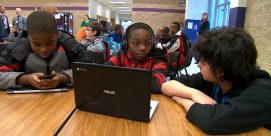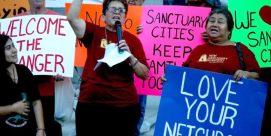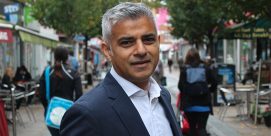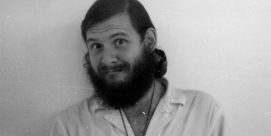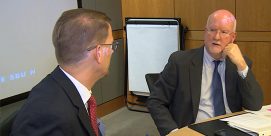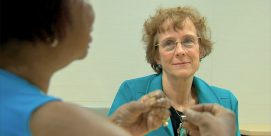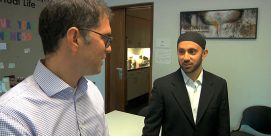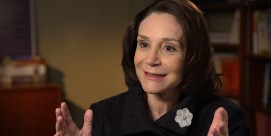Faith: Interfaith
“Conflict is a part of human experience,” says Wichita West High School psychologist Janet Fox Peterson, “and teaching about speaking and listening is so very critical, and we’re not working on that very much as a society.” More
Bob Feinman of Humane Borders says he “didn’t spend a whole lot of time paying attention to the rabbis” when he was in religious school as a child. “But the one thing I remember was the Seder every year at Passover, the Exodus. We were the ones that walked around in circles following Moses for all those years. People here are walking in circles, facing an uncertain future and facing death, as we did.” More
“I have never held myself out as a Muslim leader,” says Sadiq Khan, who became mayor of London shortly before Britain voted to leave the European Union. “But it’s a fact I’m a leader of Islamic faith, so that brings with [it] a responsibility, especially in current times.” More
“There’s so much to learn about ethical behavior in the Bhagavad Gita, the Talmud, all of the Old Testament, the New Testament…Islam,” says physician, philanthropist, former hippie, and Silicon Valley guru Larry Brilliant. His memoir is called Sometimes Brilliant: The Impossible Adventure of a Spiritual Seeker and Visionary Physician Who Helped Conquer the Worst Disease in History.
More“When you walk into the voting booth, I’ve compared it to the holy of holies in the ancient temple. A curtain is closed behind you. You are alone with your God and your vote. People will cast their votes listening to their hearts,” says Rabbi Jack Moline, president of the Interfaith Alliance. More
“One of the things we discovered very early on in our existence is there was pent up demand both in the United States, but also globally, for various religious actors and communities to come and engage with the State Department, to learn about our foreign policy,” says Shaun Casey, US Special Representative for Religion and Global Affairs. More
“There is no way you can talk about, discuss or even acknowledge the contribution of African-American history without acknowledging the very real presence and power of faith as a part of that history,” says Rex Ellis, associate director of curatorial affairs at the Smithsonian’s National Museum of African American History and Culture. More
“This is a silent revolution that’s transformed health care so that every person can have their inner life, their spirituality addressed as an integral part of their care,” says Dr. Christina Puchalski, founder and director of the George Washington University Medical School’s Institute for Spirituality & Health. More
“You can be deeply embedded and enriched by a religious community and still be excited about collaborating with people who are of a different faith community,” says Rabbi Yehuda Sarna, co-leader of New York University’s Global Center for Academic and Spiritual Life. More
“We’re at a moment where we’ve adopted a new technology,” says MIT technology and society professor Sherry Turkle. “We’ve been vulnerable to its seduction, and we’re also ready to say this has led us not to a good place in terms of how it’s affected our relationships. It’s time for a change.” More

